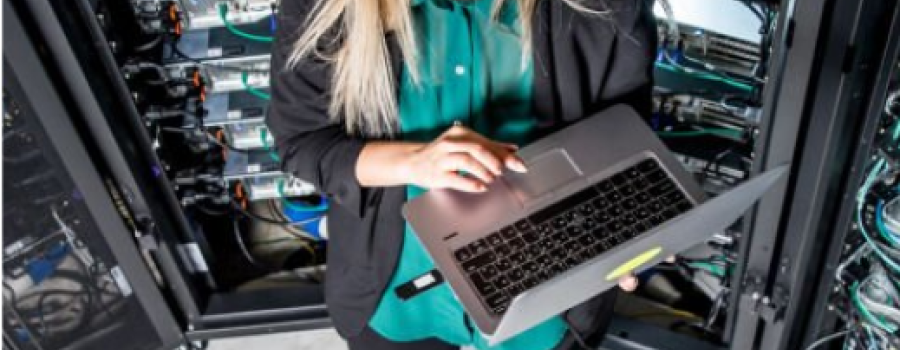Solve crimes by following digital footprints and uncovering vital evidence.
Are you passionate about technology and intrigued by solving digital crimes? The Graduate Certificate in Digital Forensics at University of the Cumberlands offers a focused, career-enhancing credential that blends IT expertise with criminal investigation skills. Through this online program, you’ll explore key topics such as electronic fraud, identity theft, online scams, and data breaches—gaining practical knowledge in tracking, analyzing, and preserving digital evidence. As cybercrime continues to rise, professionals trained in digital forensics are in high demand across law enforcement, corporate security, and government agencies. This certificate equips you with the critical thinking and hands-on skills needed to step into roles such as digital forensic technician, cybersecurity analyst, or incident response specialist—without the time commitment of a full graduate degree.
By the Numbers
Program Requirements
Digital Forensics Certificate
The Graduate Certificate in Digital Forensics is a fully online, 12-credit-hour program designed to equip professionals with specialized skills in cybercrime investigation, digital evidence analysis, and cybersecurity compliance. This targeted certificate prepares students to uncover and interpret critical data related to data breaches, intellectual property theft, financial fraud, cyberattacks, and other forms of illicit digital activity.
Aligned with University of the Cumberlands’ mission to promote professional excellence, ethical decision-making, and lifelong learning, the program enhances students’ expertise in both information technology and criminal justice, empowering them to take on high-demand roles in digital security and forensic analysis.
Course Requirements
A minimum undergraduate cumulative GPA of 2.0 is required to be admitted to the certificate in business analytics program.
Take the Next Step
Mission and Goals
The digital forensics program strives for excellence in creating, applying, and imparting knowledge in IT through comprehensive educational programs, research, dissemination, and service to professional societies, communities, states, and the nation.
Digital Forensics Careers & Outcomes
All stats from U.S. Bureau of Labor Statistics
Digital Forensics Technician: $61,930
Digital Forensics Technician: $61,930
Digital forensics technicians aid investigators by collecting and analyzing evidence from digital attacks and electronic resources.
Information Security Analyst: $102,600
Information Security Analyst: $102,600
Information security analysts plan and carry out security measures to protect from cyber-attacks and reduce risk of loss of data.
Forensic Science Technician: $61,930
Forensic Science Technician: $61,930
Forensic science technicians aid in investigations by collecting and analyzing evidence to find the culprit.
Information Research Scientist: $131,490
Information Research Scientist: $131,490
Computer and information research scientists research new and existing technology, design and test new technology, and create innovative use for new and existing technology.
Information Systems Manager: $159,010
Information Systems Manager: $159,010
Computer and information systems managers manage teams of other computer specialists in various roles to fulfill the needs of a company. They often organize, direct, and present projects.
Quality Assurance Analyzer: $109,020
Quality Assurance Analyzer: $109,020
Quality assurance analyzers identify issues with software applications in order to ensure safety and functionality of a given product.
Common Questions
The Graduate Certificate in Digital Forensics is a 12-credit-hour online program designed for professionals seeking to enhance their expertise in investigating and analyzing digital evidence related to cybercrimes. The curriculum covers key areas such as data breaches, intellectual property theft, financial fraud, and other illicit digital activities, equipping students with the skills to address and mitigate cyber threats effectively.
The program consists of 12 credit hours and can typically be completed in less than a year, depending on the student's course load and schedule. This flexible timeline allows working professionals to balance their studies with other commitments.
Yes, the Graduate Certificate in Digital Forensics is offered entirely online, providing flexibility for students to complete coursework remotely. This format is ideal for working professionals seeking to advance their careers without disrupting their current employment.
Absolutely. Earning a Graduate Certificate in Digital Forensics can significantly enhance your qualifications in the growing field of cybersecurity. It provides specialized knowledge and skills that are in high demand across various industries, including law enforcement, government agencies, and private corporations.
Graduates of the program are well-prepared for roles such as digital forensics analyst, cybersecurity specialist, information security analyst, and forensic computer examiner. These positions are critical in protecting organizations against cyber threats and are in high demand across multiple sectors.
Applicants must hold a bachelor's degree from an accredited institution. While a background in information technology or criminal justice is beneficial, it is not mandatory. Prospective students should also submit official transcripts and meet any additional requirements specified by the admissions office.
While prior coding experience is not a prerequisite, familiarity with programming languages such as Python or Java can be advantageous. The program focuses on practical applications of digital forensics tools and techniques, and students will gain hands-on experience in analyzing digital evidence.
Faculty Experts
Learn more about your future digital forensics professors.

Dr. Michael A Grabinski

Dr. David Somana

Dr. Shareeda Tyaire
Request Information
Ask us about our digital forensics degree program today!

